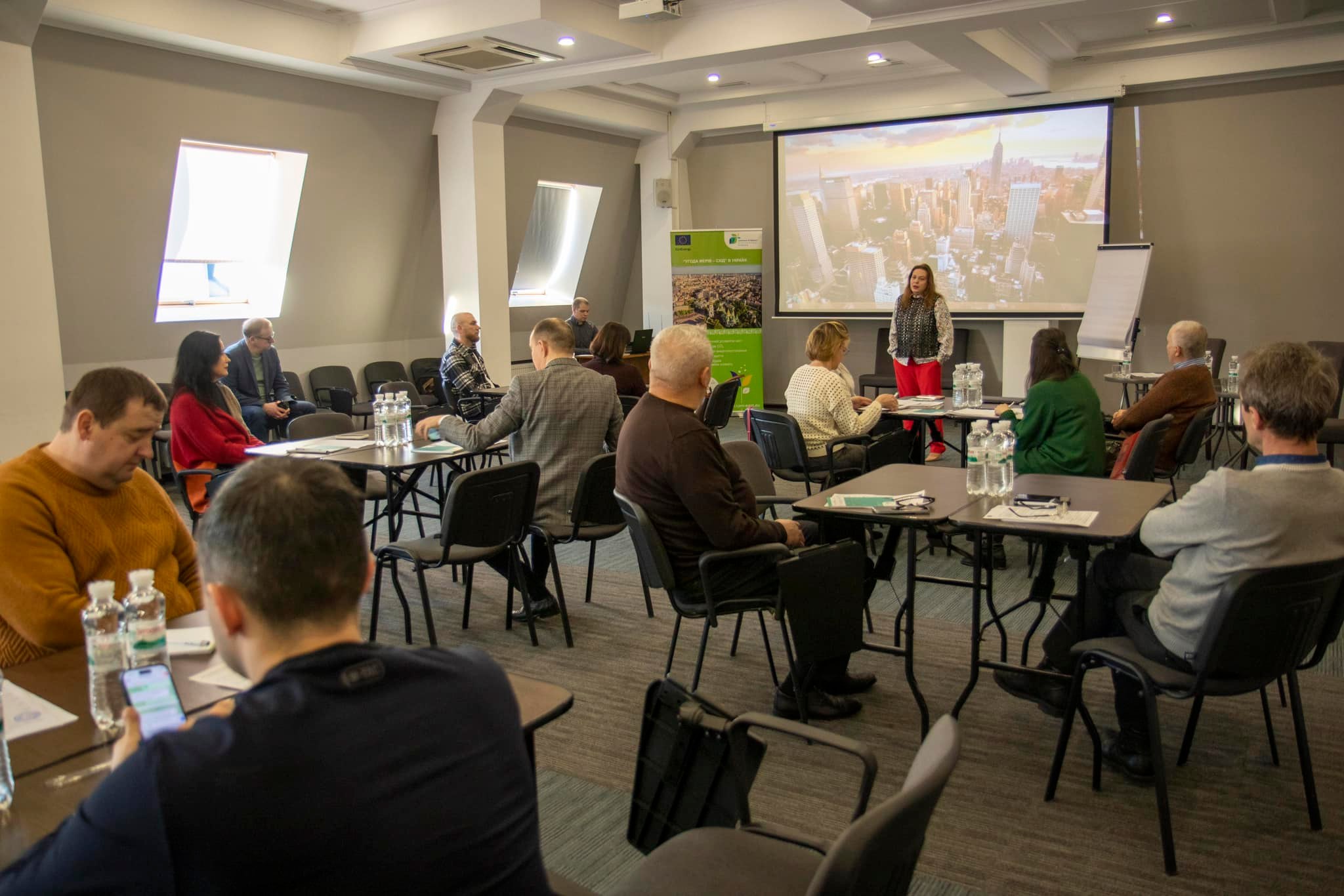Case studies, District heating, Municipal buildings and facilities, Others, RES, Residential buildings, Street lighting, Transport
SEAP Monitoring Training in Ukraine Highlights Approaches to Climate Policy Implementation

Covenant of Mayors East (CoM East) held a training session on ‘Monitoring the Sustainable Energy and Climate Action Plan’ (SEAP) drawing together representatives from 18 municipalities, energy managers, and sustainable development experts across Ukraine. The training took place in Truskavets, Ukraine, and focused on the critical aspects of data collection, analysis, and the evaluation of energy and climate measures implemented by local communities.
The training covered a wide range of topics, including:
– International and national commitments in the energy and climate sector
– The requirements for monitoring reports and the mobilisation of municipal resources
– The structure of the monitoring emissions inventory, calculation of the business-as-usual (BAU) scenario, and methods for data collection and processing
– Monitoring climate change mitigation measures, practical approaches, and best practices
– Assessing the risks and vulnerabilities of municipal sectors to climate threats
– Identifying indicators for monitoring adaptation actions.
A key part of the training involved the practical completion of the SEAP online template, providing participants with hands-on skills in preparing monitoring reports and collecting data. These practical skills will help communities implement their energy and climate strategies more effectively.
The event also provided a valuable platform for sharing experiences and strengthening cooperation among communities working toward their climate goals. Effective monitoring is a vital step for assessing progress, improving measure effectiveness, and attracting additional resources to local projects.
The training highlighted two key practical case studies:
- Truskavets: Participants learned about the work of the Local Development Agency and the city’s energy team, with a particular focus on funding mechanisms for energy efficiency. One notable project discussed was the installation of photovoltaic panels at a local hospital, financed through the ESCO mechanism.
- Drohobych: Participants visited the City Institute and met with the energy team, learning about the city’s approach to fundraising for energy efficiency initiatives. They also visited municipal facilities where renewable energy sources have been successfully implemented.
The visits to Truskavets and Drohobych underscored that targeted energy policies and investment attraction lead to tangible results. The experience of these municipalities serves as a valuable benchmark for other communities looking to implement sustainable energy solutions.
